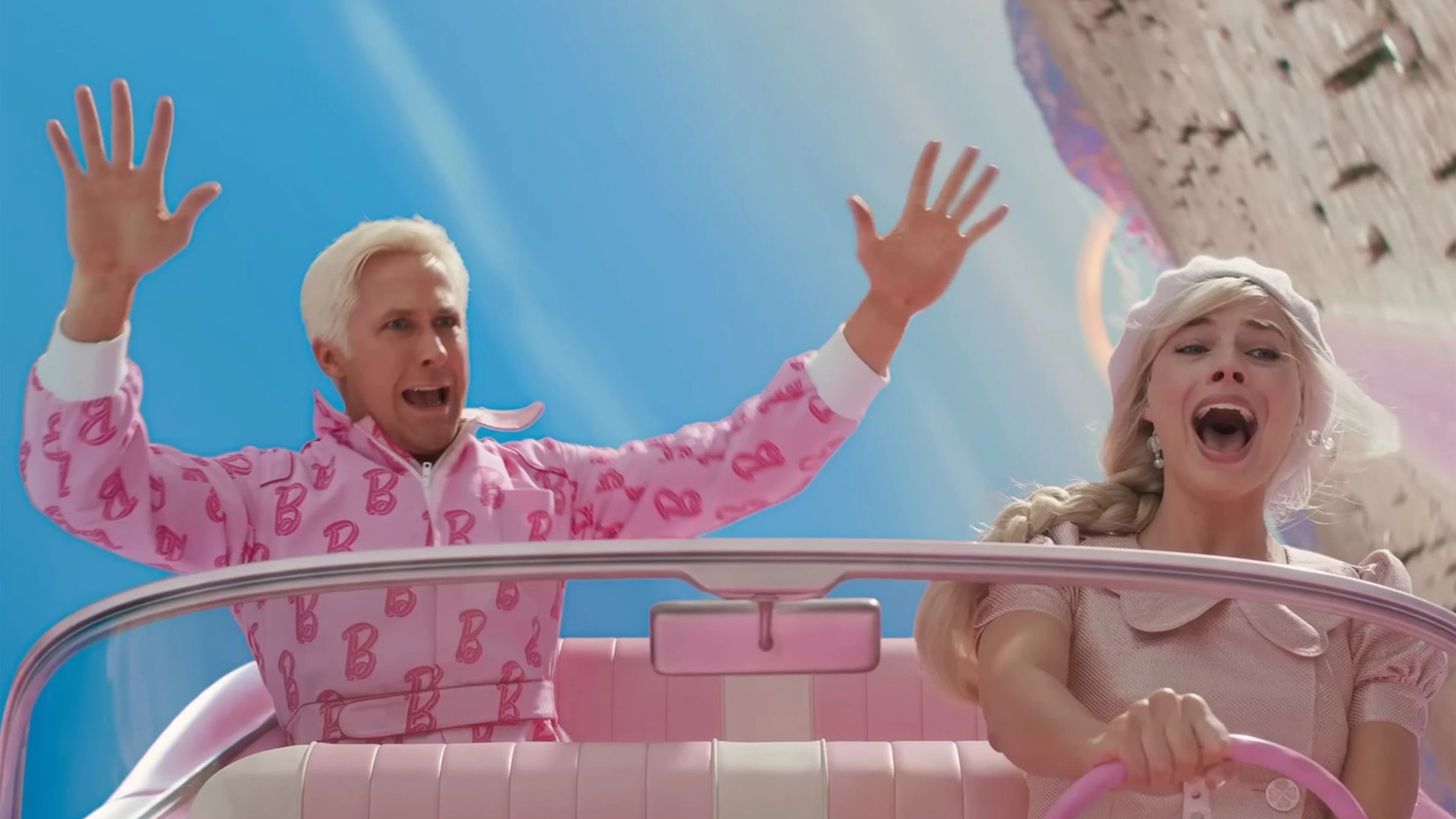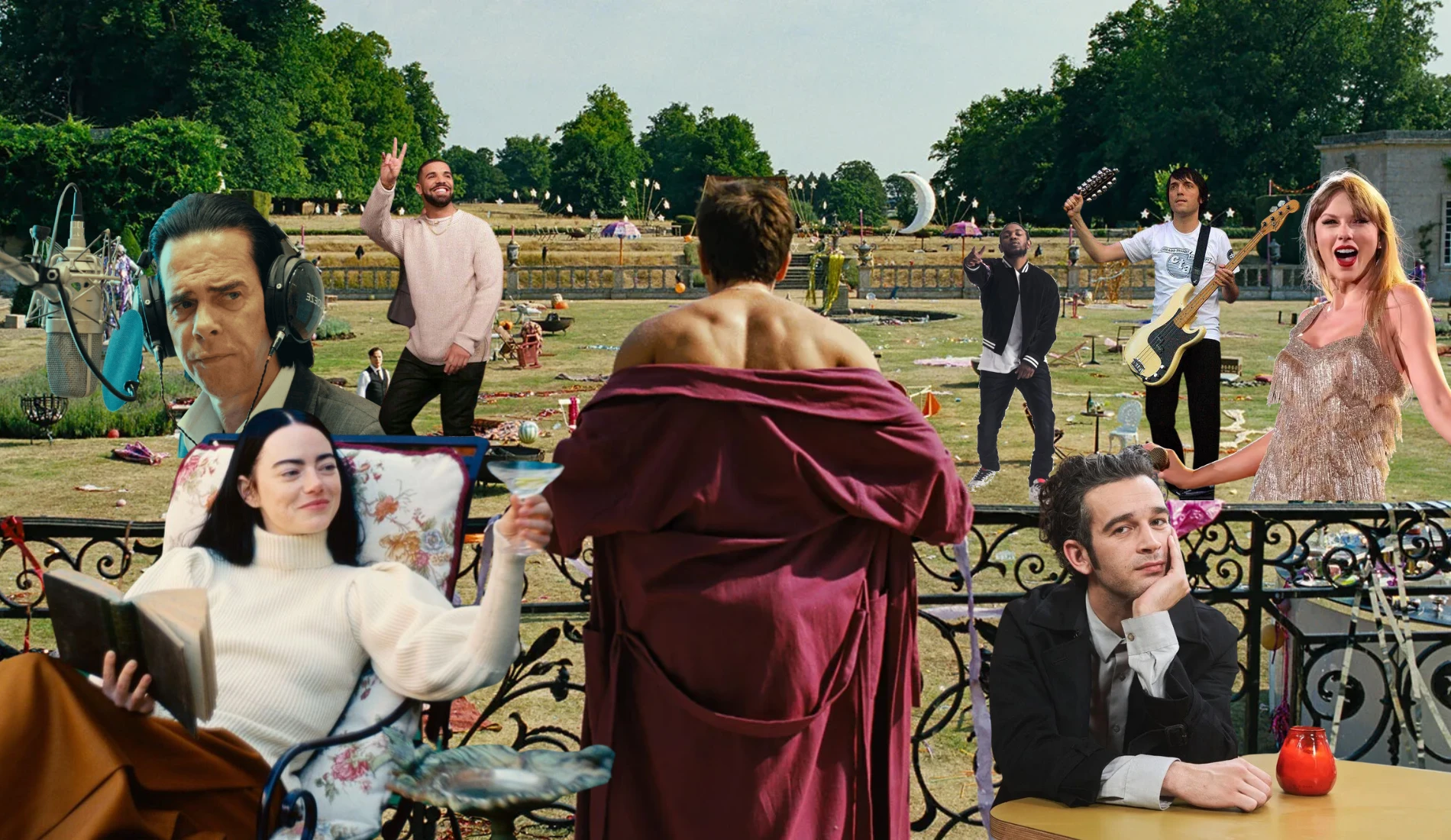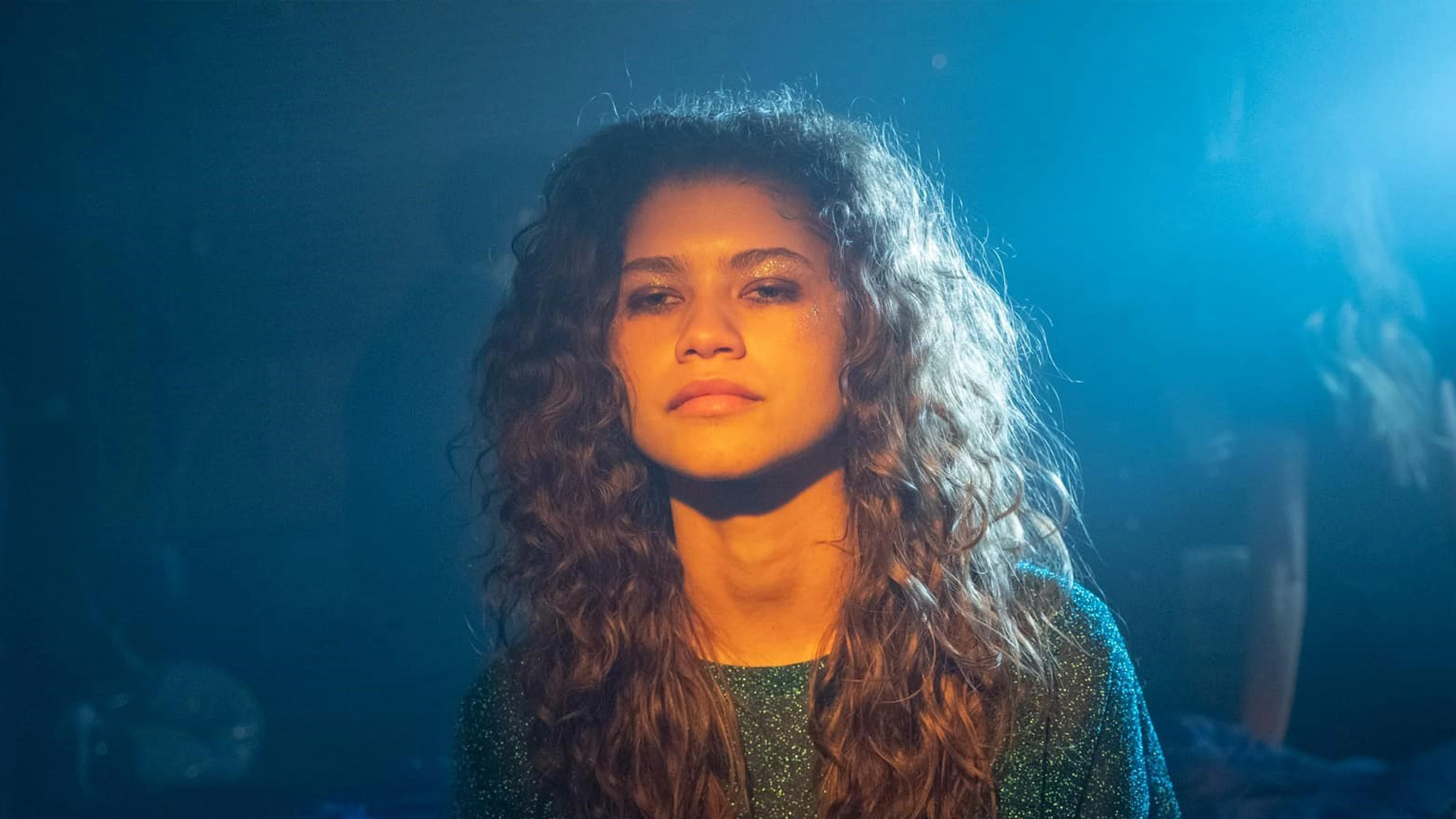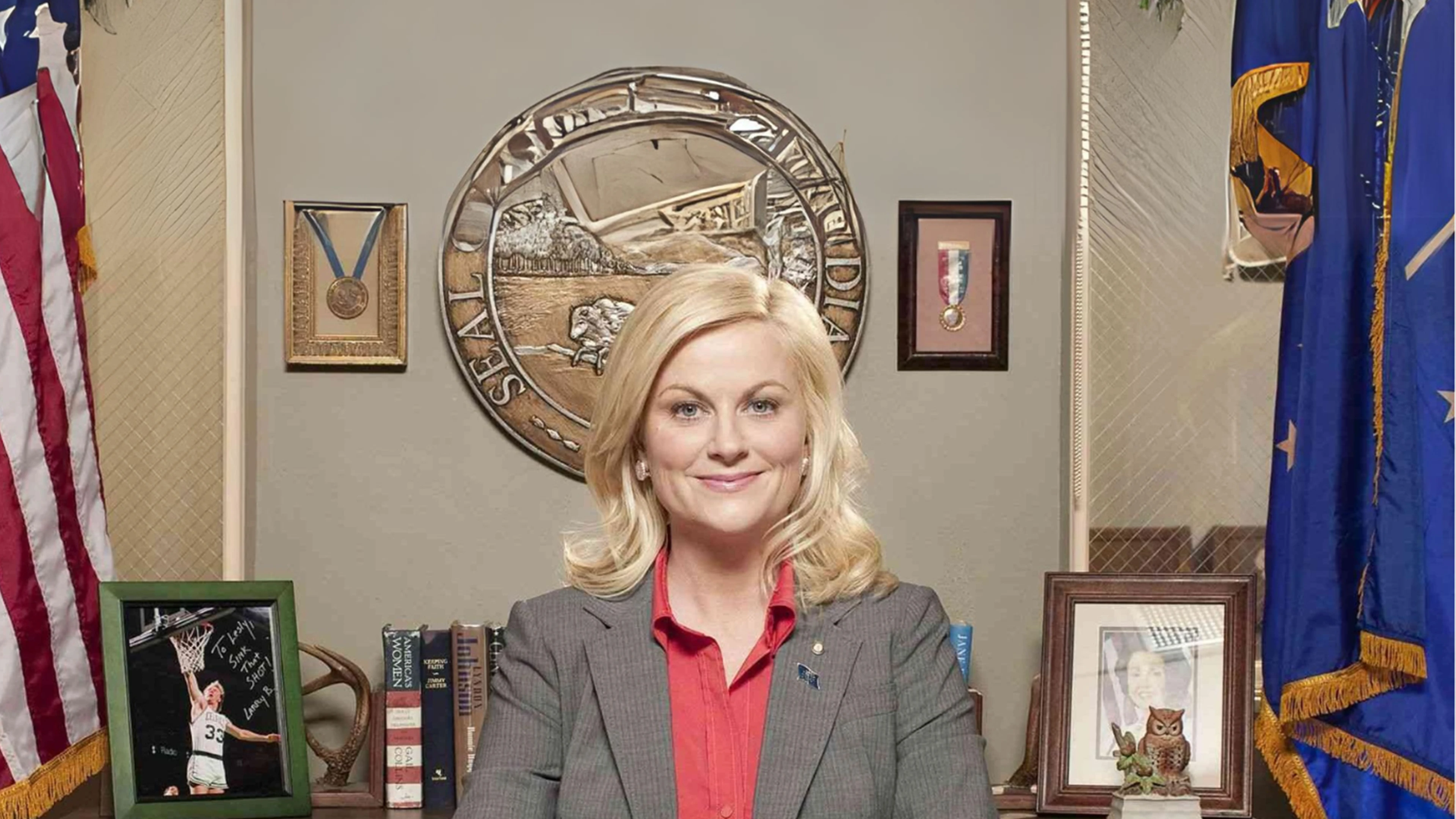26th July, 2024
I take, on average, 7.3 minutes to bring up Greta Gerwig in any conversation I’m having with anyone, about anything, anywhere. I’ve been deeply obsessed with her work since incidentally viewing Mistress America back in 2015. Between Ladybird, her remake of Little Women and Frances Ha, she has proven time over her aptness for writing quippy, clever, pointed comedy that speaks in depth and nuance to the wretched generalised experience of being a person. When it was announced that she’d be co-writing and directing a Barbie movie starring real-life Aussie Barbie herself, Margot Robbie, I couldn’t imagine how it would turn out, but I knew I’d love it.
I rarely drag myself off to the cinema. I prefer the at-home-in-pajamas-eating-leftovers viewing experience of most movies. I don’t feel the pull toward seeing something immediately as it comes out. Usually I am happy to wait. For Greta Gerwig’s Barbie, however, I got tickets to the earliest possible screening. Now, after pondering the movie non-stop for about a week, I thought I’d break my silence and deliver this monster essay so that we can all sleep soundly again. It’s not particularly well-organised, but if you’ve seen the movie, you understand storylines don’t need air-tight contingency to make sense and be enjoyable. So, enjoy!
Barbie Dolls & what they mean to us:
I have what I’d consider a pretty generalised sentiment around the idea of Barbie. Growing up, I definitely favoured Barbie over Bratz, but I don’t consider my love for Barbie to be particularly profound. I can’t say that I particularly idolised her, as a beauty standard or as a career woman, but I had a dollhouse I was rather fond of. I remember getting my Barbie CD-player, where I played my first CD (a So Fresh mix with Aqua’s Barbie Girl on it), which I loved very much. Regardless of your personal Barbie trauma/nostalgia, this movie caters to you. You don’t need to be a superfan, and you’ll get something out of it even if you despised the chirpy blonde doll all the way to adulthood.
A word about Queer media and female friendship:
The ABC described Barbie as “an adult meta-comedy about the weight of womanhood”. Naturally, a Barbie movie was always going to be heavy-handed in its discussion of gender. It was always going to be the flamboyant bright pink pageant that it is. Add a touch of self-awareness and it’s easy to call it ‘camp’ and walk out of the cinema unmoved. I think calling it camp is a lazy analysis, if your prerogative is to analyse. It’s entirely fine to just enjoy this movie. I want to make that clear. But slapping the ‘camp’ sticker on the figurative DVD case and tossing it aside does this film a huge disservice. It’s intentionally lavish and unashamedly feminine in a political and social environment that usually disregards the importance of all things pink and glittery. To make a film that both celebrates and picks fun at modern ideas around womanhood, and have it do so well amongst all kinds of people, is an insanely thin line to walk so well.
When I refer to this film as queer, I don’t mean that it’s about or pertaining to homosexuality. It definitely nods toward a myriad of queer culture, and leaves room for analysis, but it’s not a gay movie. There are characters and moments that ring true as intentionally ambiguous on the gaydar, but it’s not the point, it’s more of a by-product. It is queer in the sense that it explores identity by challenging traditional standards and dynamics. It speaks volumes about what it means to perform gender, and how our relationships with ourselves and others are at the whim of the gender constructs we use to understand our world.
I saw a TikTok that said the movie doesn’t offer any new insights on the feminism front – and I agree with that. But we don’t have to walk out of the cinema with some profound realisation dropped on us. A celebration of comradery and community rooted in a long history of contempt that it doesn’t shy away from is a highly satisfying viewing experience in my books.
It addresses femininity and masculinity in some very nuanced ways. It celebrates the depth of female friendship, without presenting the overall impenetrable Women-Supporting-Women approach that we’ve seen in the past. We see different generations of women and their relationship with femininity represented through the relationship with Barbie. The gen-z daughter Sasha proclaims her distaste for Barbie, and later states, “Women hate women. And men hate women. It’s the only thing we all agree on.” But she still urges her Barbie-loving mother to save the day in the end. All the characters are flawed and variable, both symbolic and genuine. It emphasizes the sentiment of female solidarity and friendship, without romanticising it as some all-encompassing solution, or ignoring contempt.
The power dynamic between kens and barbies isn’t blatantly and carelessly swapped, with no consideration for real-life structures. In a power position, Barbies are still polite and respectful of their Ken counterparts. The movie explores the depth of the womanly capacity for empathy in really nuanced ways. Barbie says she doesn’t love Ken, but she doesn’t want to hurt him. They remind her that Ken has stolen her house and ruined her life. She still doesn’t want to be unkind. When we see Barbie go to the real world, we pity her, and we know how she’s feeling. We know Ken doesn’t feel that way in Barbie Land, though. Even in a world where women are in charge, we know they don’t treat men as second-class citizens. The comedy makes fun of patriarchy, commercialism, and social commentary in a way that is both self aware and respectful. It pokes fun without bullying anyone.
The monopoly of it all:
The movie spends a fair amount of time poking fun at the commercialisation of the Barbie brand – which is interesting considering the sheer amount of money that it took to make and advertise this movie, along with the money it will undoubtedly make. It is a movie for everyone – but the push for equality doubles as an agent for mass-consumption here. Of course, there’s nothing wrong with enjoying a movie that took a lot of money to make. It’s just something I’ve been thinking about.
It has a stacked-out cast and soundtrack, everyone from Billie Eilish to Michael Cera. Everyone is a fan of someone who’s involved in this movie. Even if you are not a fan of Barbie, it would be difficult to find this movie unenjoyable in today’s media landscape. It’s extremely referential to other pieces of media all the way, though. From the opening scene’s Kubrick reference. It nods to so many other cultural artifacts, in almost every line or shot. It feels like a big long inside joke between you and the movie, and everyone in the theater, and your best friend beside you.
Undeniably a movie:
Barbie fits into a little subsection of movies that seem to have grown in popularity since covid. That is – The Truman Show, Don’t Worry Darling, Black Mirror, repetitive disillusionment with reality subsect. The Washington Post described it as a “candy-coloured confection of knowing humour and bitter irony”. Barbie critics have complained of a lack of continuity regarding the ‘real world’ and ‘Barbie Land’. I think that either this dissonance is on purpose, or, if it is accidental, it’s effective anyway. You’re not meant to feel at ease about a world that’s fundamentally different from yours. You’re supposed to sit in the discomfort.
You wouldn’t be able to immerse yourself in the movie and be aware of your world in contrast to it if there was more continuity. The writing of this movie makes the audience conscious, because of this displacement. The script and screenplay do not have the cohesion and plausibility of the marvel movie worlds we are used to – but it doesn’t need to.
If you’re expecting to walk out of the cinema learning something new, forget it. This movie will mostly just remind you of the state of things, but it is revolutionarily accessible to a very wide net of demographics. The Barbie universe doesn’t exist entirely outside of our own, and it only exists in tandem with ours, as a reflection and reaction to ours. In that way, the movie is more of an introspective community building exercise than a big Hollywood money making flaunt.
It also seemingly falls in line with several cinematic projects that exhibit a collective interest in post-escapist media. We used to see a lot of cinema made and enjoyed for means of entertainment and fantasy. Of course, popular media has always reflected the climate that it’s created from. So it makes sense that self-referential media over the last few years have become invariably more popular. From the renaissance of Fleabag to Bo Burnham’s Inside, we’ve seen project after project find success in explicitly acknowledging its audience. In decades passed, breaking the fourth wall was an action seldom taken. Barbie does this well, while still maintaining a steady gap between worlds. It’s a movie for the people, (all of them), and I love that.






